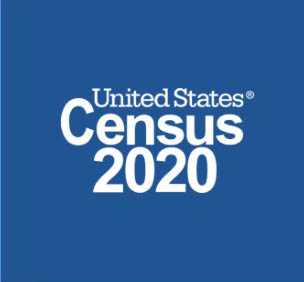
The 2020 Census: Easy, Safe and Important
This article reflects the Mortgage Bankers Association’s recent partneship with the Census Bureau as part of the government’s efforts to ensure a fair and accurate 2020 Census.

Counting everyone who lives in the United States, the 2020 Census is happening now with 92.2 million households or more than 62 percent of the country having already responded. But the 2020 Census is not finished. The Census Bureau is done when the country achieves a complete and accurate count.
Data collected in the census informs distribution of more than $675 billion in federal funds to states and communities each year for the next 10 years for things such as health care, food assistance, housing, emergency services and infrastructure. Census statistics influence decisions made by businesses and policymakers across the country. These decennial data are the backbone of the country’s official statistics.
The 2020 Census is easy to do and we can help. Encourage your clients, customers, family and friends to fill out the census. For the first time, we can respond to the census online. Filling out the 2020 Census is quick and easy, either respond online, by mail using the questionnaire the Census Bureau mailed each house that has not responded yet, or by phone at 1-844-330-2020, and self-response minimizes the number of census takers who have to visit homes in person who have not responded during the Bureau’s non-response follow-up phase from August 11 to Oct. 31, 2020.
Do you want to know how your state or city is doing with response? Can your state association beat your neighboring state association’s 2010 Census response rate? The Census Bureau publishes response rates daily at www.2020census.gov/response-rates.
The 2020 Census is safe to do. Strict federal law protects census responses. It is against the law for any Census Bureau employee to disclose or publish any census information that identifies an individual or business. Census Bureau employees take a lifelong pledge of confidentiality to handle data responsibly and keep respondents’ information private. The penalty for wrongful disclosure is a fine of up to $250,000 or imprisonment for up to 5 years, or both. No law enforcement agency (not the Department of Homeland Security, U.S. Immigration and Customs Enforcement, Federal Bureau of Investigation or any other agency) can access or use respondents’ personal information at any time.
The Census Bureau will never ask for a Social Security number, bank or credit card account numbers, money or donations, or anything on behalf of a political party. The Census Bureau has a robust cybersecurity program that incorporates industry best practices and federal security standards for encrypting data. To make sure you and your community are counted, learn more about the 2020 Census by visiting https://2020census.gov.
The 2020 Census is important. Businesses can use U.S. Census Bureau statistics to help guide their decisions. Census data get used extensively, the (annual) American Community Survey and the decennial census — both are critical resources. State, local and federal government officials will use 2020 Census statistics to determine how to allocate and spend billions of dollars annually for critical public services, including hospitals, schools, roads and bridges, which in turn will generate opportunities for private sector businesses.
Visit data.census.gov to check out the data resources of the Census Bureau. To find local population data, visit data.census.gov and refine the search using advanced tools. You can use inputs from these statistics to: analyze census data related to the number of home buyers in a particular area; forecast and make projections about housing industry growth; evaluate trends in populations at state and local levels; analyze migration trends; research educational attainment in the United States; look up median household income by different levels of geography, and search employment status.
In addition to the 2020 Census, there is the Economic Census. One major Census Bureau resource for businesses is the 2017 Economic Census. Conducted every five years, the economic census collects extensive data about nearly four million businesses across most industries and all geographic regions of the United States. In addition, the Census Business Builder, a suite of free online tools available on census.gov, allows business owners and analysts to explore local statistics — ranging from consumer spending to new building permits.
Spread the word that the 2020 Census is easy, safe and important. Decennial census statistics will influence decisions over the next 10 years. It’s important that we all respond – and encourage response — to shape the future of our communities. Learn more and respond to the census today at 2020CENSUS.GOV.
